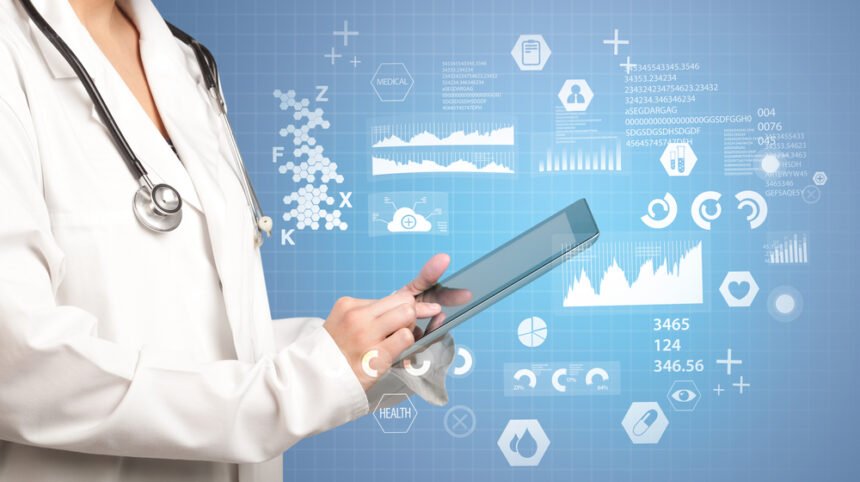Did you know that global businesses are expected to spend $274 billion on big data this year? That figure is projected to grow at a rapid pace for years to come.
The healthcare sector, in particular, has discovered a number of benefits of leveraging data technology for electronic health records. There are a lot of reasons that big data can be useful for healthcare businesses of all sizes. Hospitals and other healthcare companies are using big data to improve organizational decision-making, market more effectively, and improve outcomes for patients. We shared ten of the best examples of big data in healthcare in one of our previous posts.
In this article, we will put a glance on the role and importance of data collection in healthcare.
Big Data is Vital to Healthcare
Unfortunately, big data is useless if it is not properly collected. Every healthcare professional needs to make data collection a top priority by improving the data quality.
The digital revolution has exponentially increased our ability to collect and process data. In response, organizations across all industries have invested in more dynamic data collection and analysis solutions in order to gain a competitive edge. Big data is going to be even more important in healthcare after the pandemic ends.
Data collection has become a necessity for companies of all types. However, it is particularly important for the healthcare industry for a variety of reasons.
In the article below, medical experts (like the ones at ThriveMD) take a closer look at the role and importance of data collection for healthcare organizations.
Why data collection in healthcare is Crucial?
Data collection in healthcare is crucial for several reasons. First and foremost, it allows healthcare professionals to track patient outcomes and identify trends in health conditions and treatments. This information is vital for making informed decisions about patient care and developing new and improved healthcare practices. Additionally, hospital data can help in monitoring the spread of diseases and identifying potential outbreaks, leading to more effective public health interventions. Furthermore, analyzing large sets of healthcare data can also lead to advancements in medical research and help in the development of new treatments and medications. Ultimately, robust data collection is essential for improving the quality of healthcare and ensuring better health outcomes for patients. It provides valuable insights that can drive innovation and improvement in the healthcare industry.
Why Healthcare Data Collection Is Essential
Data collection has far-reaching implications for all involved in the delivery of care. This includes healthcare organizations, individual providers, and even the patients themselves.
There are many ways that healthcare organizations can collect data more easily. They can conduct health data collection via HealthKit and Google Fit if they work with customers using IoT devices or other healthcare platforms.
Dynamic data collection practices can help healthcare organizations:
Enhance Competitiveness
The modern healthcare system is incredibly complex. It consists of a vast network of interconnected entities, including hospitals, insurance providers, pharmaceutical companies, and government entities. If a care provider does not adequately manage all of these relationships, then they will have difficulties maintaining continuity of operations.
Data collection and analysis software can enhance a healthcare organization’s competitiveness. It can help identify inefficiencies within their revenue cycle, streamline communication with payers, and improve profitability.
Guide Decision Making
Data collection also plays an essential role in decision-making. Key stakeholders can analyze various performance data to make informed, strategic decisions regarding the direction of the healthcare organization.
All this data is not just useful for C-suite executives or office partners, but it will also guide patient care decisions. Clinicians can quickly and efficiently access patient data when developing an ongoing care plan. This will ultimately lead to a higher quality of patient care, but more on that below.
Reduce Cost of Care
It’s no secret that the costs of healthcare services are at historic highs. While data collection alone will not be able to reverse this concerning trend, these modern tools can make a significant impact.
Inefficient data entry and collection practices are a significant source of waste among care providers and healthcare organizations. Advanced data collection technologies enable providers to automate many of these redundant practices. This will result in savings for healthcare organizations and eventually drive down the cost of care for patients.
Improve Patient Outcomes
Perhaps the most significant role of data collection in healthcare is that it can lead to better patient outcomes. When insurers, clinicians, and support staff can safely and efficiently exchange information, these entities can work together toward a common goal of providing patients with more effective treatment.
As you can see, data collection technologies are forever changing the healthcare industry. Fortunately, most of these changes are for the better. However, providers must take necessary steps to safeguard the confidential patient data that they have been entrusted with.
Data Collection is Crucial for Healthcare Businesses
Healthcare organizations need to make data collection a top priority with healthcare providers. This is going to be even more important as the pandemic ends and more business practices become digitalized. The data collection method is crucial for healthcare businesses as it allows them to gather valuable insights on patient outcomes, treatment effectiveness, and operational efficiency.
Healthcare businesses can identify areas for improvement, make informed decisions, and ultimately provide better care for their patients. This information can also be used to comply with regulatory requirements, assess performance, and optimize resource allocation. Without proper data collection, healthcare businesses would struggle to measure their impact and make evidence-based decisions, ultimately compromising patient care.
Benefits of data collection
Data collection has numerous benefits, including the ability to make informed decisions based on accurate and up-to-date information. By collecting data, organizations can identify trends, patterns, and areas for improvement within their operations. This can lead to increased efficiency, cost savings, and overall better decision-making. Additionally, data collection allows for a better understanding of customer behavior and preferences, which can be used to tailor products and services to meet their needs better. Furthermore, data collection enables organizations to track their progress and measure the success of strategies and initiatives. Overall, data collection is crucial for organizations to stay competitive and relevant in today’s data-driven world, as it empowers them with the insights and information needed to make strategic and informed decisions.
Conclusion
In conclusion, data collection plays a crucial role in healthcare as it provides essential health information for decision-making, improving patient care, and advancing medical research. The data management and analysis of patient data, such as demographics, medical history, and treatment outcomes, can help healthcare professionals identify trends, assess the effectiveness of interventions, and tailor treatments to individual patients.
By utilizing data collection methods and technologies, healthcare organizations can enhance the quality of care, reduce medical errors, and optimize healthcare delivery. Data collection is integral to the continuous improvement of healthcare practices and the overall well-being of patients, making it an essential component of the healthcare system.










